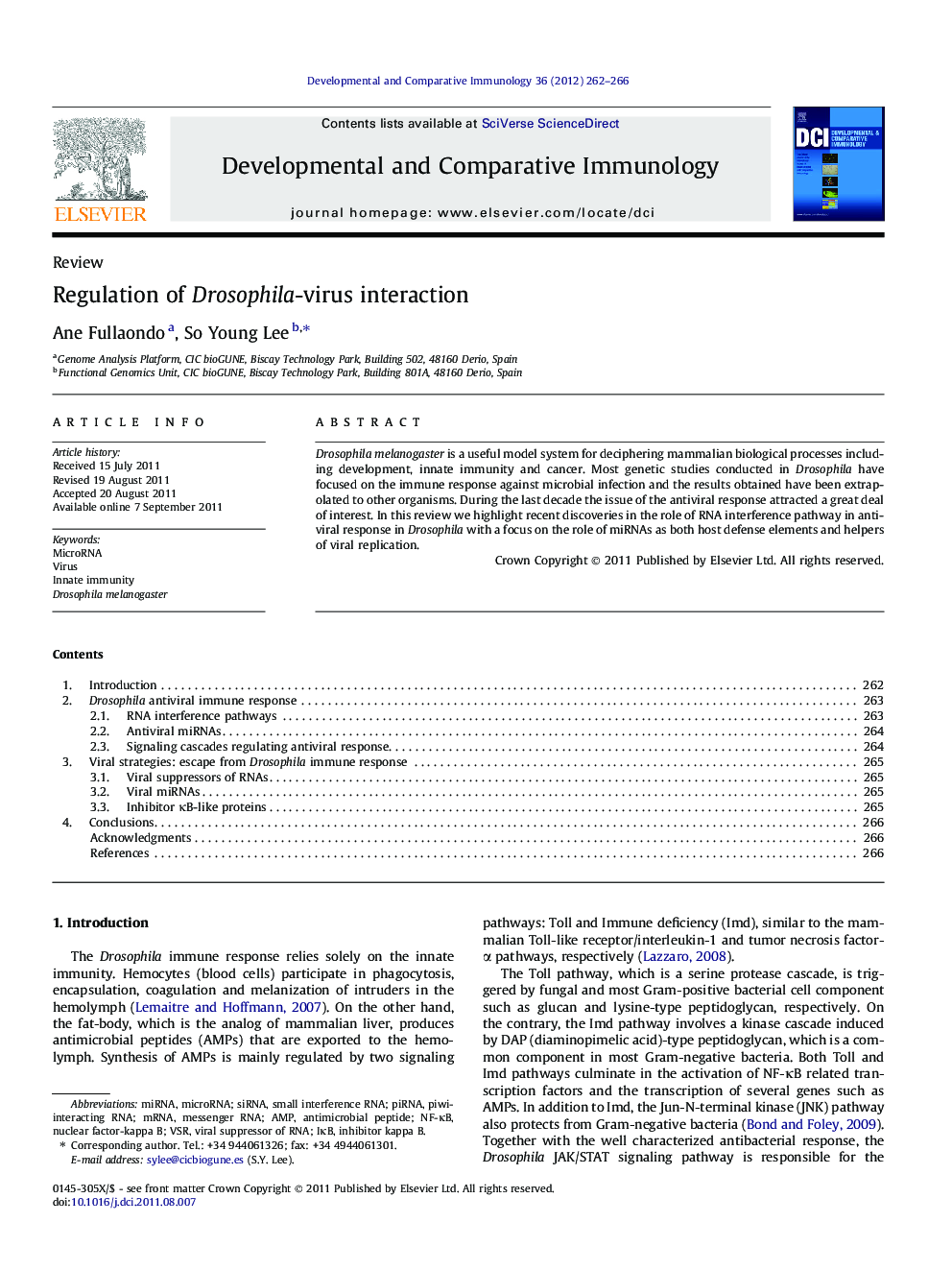| Article ID | Journal | Published Year | Pages | File Type |
|---|---|---|---|---|
| 2429597 | Developmental & Comparative Immunology | 2012 | 5 Pages |
Drosophila melanogaster is a useful model system for deciphering mammalian biological processes including development, innate immunity and cancer. Most genetic studies conducted in Drosophila have focused on the immune response against microbial infection and the results obtained have been extrapolated to other organisms. During the last decade the issue of the antiviral response attracted a great deal of interest. In this review we highlight recent discoveries in the role of RNA interference pathway in antiviral response in Drosophila with a focus on the role of miRNAs as both host defense elements and helpers of viral replication.
► Viruses are the most abundant pathogens on earth and resistance of cells to them depends on their capacity to detect and control viral replication. Yet, the molecular basis of host-virus interaction still remains unclear. The purpose of this review is to describe the Drosophila-virus interplay from two distinct points of view: host immune response and viral strategies of infection. In addition, we have remarked the role of microRNAs in this immune context with which a new dimension to our understanding of complex regulatory networks is added.
